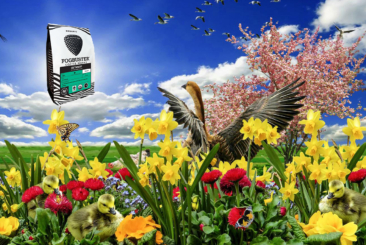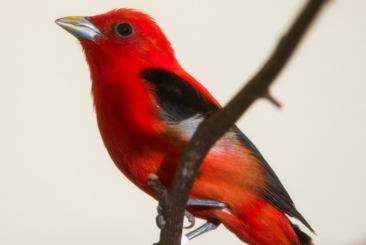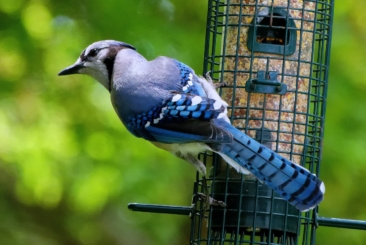Songbird Conservation
Roger Williams Park Zoo participates the North American Songbird SAFE program. This program works to reduce threats to North American songbirds through education and conservation efforts. Check out our new live webcam featuring our local wild birds, learn about the SAFE program, and discover ways you too can help birds.
Live Bird Friendly

Bird Friendly Coffee
You can purchase Bird Friendly® certified coffee at the Zoo! Thanks to our partners at Fogbuster Coffee Works.

Meet the Birds
Meet the birds supported by Bird Friendly Coffee Farms — and see how you can directly support the farms they inhabit.

Bird Friendly Home and Yard
Help birds by following these simple steps to make your backyard and home bird friendly.
Gardening with Wildlife in Mind:
Here, you can transform your yard into a beautiful and thriving habitat for birds, butterflies, bees, and other fascinating creatures. Not only will you be creating a stunning outdoor space, but you’ll also be contributing to the health of our local ecosystem.
Our downloadable resources have easy-to-follow advice and valuable plant recommendations, so you’ll be well on your way to a garden buzzing with life.
Click the links below to download your free PDFs and get started today!
Simple Actions to Live Bird Friendly:
Help make your home and lifestyle better for birds and the planet.
- Turn lights out and treat windows OR put up bird anti-collision window stickers to help keep birds safe
- Reduce evening lighting during peak migratory seasons
- Keep cats indoors to save birds
- Plant native plants to shelter and nourish birds
- Purchase certified sustainable paper products to help preserve the nesting grounds of boreal forest songbirds
- Avoid pesticides for a bird-friendly home
- Drink Bird Friendly® coffee to protect disappearing habitats
- Avoid single-use plastics to protect birds and the planet
Answering the Call – Saving North American Songbirds
This year, your Roger Williams Park Zoo is expanding its conservation efforts to protecting North American songbirds by partnering with the Association of Zoo and Aquariums’ (AZA) Saving Animals from Extinction: North American Songbird (NAS SAFE) program.
Since 1970, North American bird populations have suffered a net decline of approximately three billion birds. Many of the species with the greatest declines are North American songbirds.
The NAS SAFE program focuses on native songbird conservation and preserving, enhancing, and building native habitats. This program also begins to address reducing contaminants that affect North American songbirds, promoting bird friendly coffee, participating in citizen science, and reducing North American songbird trafficking.
North American Songbirds are commonly seen in New England, and you may recognize many of the species including Downy woodpeckers, Black-capped chickadees, Blue Jays, and Northern Cardinals, to name a few.
Keep a look out on your next visit for the many ways in which we are participating in this important initiative, including:
- Certified Bird Friendly coffee thanks to our partners at Fogbuster Coffee Works, is now available at locations throughout the Zoo
- Installation of more native plants to provide food and refuge to birds
- New decals on windows to prevent bird collisions
- Bird houses designed specifically for local songbirds
- A Motus Tower has been installed at the Zoo! Click here to explore the Motus Database and find our station. The Motus Wildlife Tracking System is an international collaborative network of researchers that use automated radio telemetry to simultaneously track hundreds of individuals of numerous species of birds, bats, and insects. The system enables a community of researchers, educators, organizations, and citizens to undertake impactful research and education on the ecology and conservation of migratory animals.
More FAQs
AZA SAFE: Saving Animals From Extinction focuses the collective expertise within AZA-accredited zoos and aquariums and leverages their massive audiences to save species.
Roger Williams Park Zoo’s SAFE participation:
• North American songbird
• Flamingo
• Tree Kangaroo
• Cheetah
• Giraffe
• Red Wolf
• American Turtle
• 318 species of songbirds (passerines) spend all or part of their lifecycle in North America
• Since 1970, we have lost 29% of North American birds, many of these are songbirds
• 4,000 species worldwide
• Roaming cats (feral, pets and Trap/Neuter/Release) kill an estimated 2.4 billion birds per year in North America
• Collisions with glass, communications towers, etc. kill up to 1 billion birds per year in North America
• Pesticide use can kill birds directly and impact them negatively indirectly
• Habitat loss and degradation
• Illegal trade in songbirds
• Non-native birds (Common starling, pigeon, house finch, house sparrow)
Songbirds provide valuable services to the ecosystems they inhabit and to humans by dispersing seeds, pollinating plants and consuming copious amounts of insects.
• Keep cats indoors (it’s also safer for your feline friend!)
• Plant native. Check out this resource on native plants P.S. Native plants often are more hardy requiring less care, are often more drought tolerant & need less water
• Certify your backyard as wildlife friendly
• Minimize grass, maximize shrubs and trees. Allow yard to be a little messy. Highly manicured lawns/gardens offer little for birds.
• Add decals to windows to help minimize bird collisions.
• Minimize outside lighting and aim it at the ground. You can also ask companies and government officials to adopt bird friendly building codes and embrace dark skies initiatives
• American Bird Conservancy
• Wild Birds Unlimited
• SAFE North American Songbirds (Facebook)
• All About Birds (Cornell ornithology site)
• Merlin bird ap (Playstore)
• Audubon Society of Rhode Island
• ASRI Nature Shop for window stickers, feeders, houses, etc.
• Check out the Audubon Society of Rhode Island for information on monthly bird walks. FREE BIRD WALKS EVERY DAY IN MAY
• Bird banding in Roger Williams Park each September
• Ebird ap to report bird sightings
Working Together To Save Wildlife
Roger Williams Park Zoo has a mission to conserve wildlife and wild places. But we cannot do it alone! We want to empower every individual to help us in saving endangered species, and preserving our environment.
As a non-profit 501(c)3, your support provides world-class exhibits, state-of-the-art animal care, environmental education, and significant contributions to help us save wildlife and wild places.

